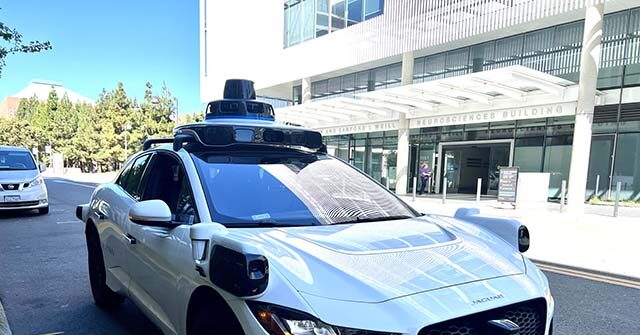The U.S. Commerce Department said on Monday it wants to ban Chinese and Russian software and hardware from Internet-connected and autonomous vehicles, citing the security risks to American drivers and U.S. national security.
Commerce officials said that while not much Chinese software or Russian parts are installed in American vehicles at the moment, it was important to implement a ban preemptively because replacing parts and software would be very expensive if a ban was imposed in the future.
Manufacturers will also need time to revise their assembly lines and ensure none of the banned components are used. Both domestic and foreign automakers have warned they will need advance warning before making changes in their production processes.
Accordingly, the proposed ban on software would take effect for the 2027 model year, while the ban on hardware would be phased in from 2029 to 2030.
Chinese parts are a slightly thornier issue because a fair number of them are already installed in American vehicles and replacing parts is harder than changing software.
Vehicles have a great deal of potentially vulnerable electronic hardware and software today, even before considering cars with autonomous or self-driving functions. The Commerce Department noted that everything from microphones and cameras to GPS and Bluetooth technology could be hacked to obtain information about a vehicle’s surroundings and the habits of its drivers.
Commerce Secretary Gina Raimondo said on Sunday that self-driving vehicles could pose even more of a threat, as hostile state-sponsored hackers might be able to shut them down to block roads, or even cause them to crash.
“This is not about trade or economic advantage. This is a strictly national security action. The good news is right now, we don’t have many Chinese or Russian cars on our road,” she said.
The Commerce Department said the public would have 30 days to comment before the new rules are finalized.
The Biden administration has already introduced tariffs to keep China from flooding U.S. markets with its electric vehicles (EVs), as well as raising tariffs on EV batteries and the minerals consumed in their production.
China is testing autonomous vehicle technology more aggressively than any other country, including a fleet of hundreds of self-driving taxis prowling the streets of the now-infamous city of Wuhan.
China has also tested autonomous vehicles on American streets, raising concerns from both Republican and Democrat lawmakers that Chinese companies could be harvesting sensitive information about American roads, drivers, and infrastructure with their vehicles.
Auto industry analysts cautioned on Tuesday that China could retaliate for the new Commerce Department regulations, and higher tariffs on Chinese EVs, by cracking down on American companies that manufacture and sell vehicles in China. A likely target would be Elon Musk’s Tesla, which has extensive operations in China.
Chinese Foreign Ministry spokesman Lin Jian denounced the Commerce Department’s proposed rules on Tuesday.
“The discriminatory practices of the U.S. targeting particular companies and products of certain countries violate the basic principles of the WTO [World Trade Organization], disrupt international trade and investment, destabilize global industrial and supply chains and will eventually undermine the US’s own interests,” Lin said.
“What the U.S. needs to do is to stop bringing down and containing other countries in the name of national security and create an open, fair, transparent and non-discriminatory business environment for companies from all countries,” he said.



